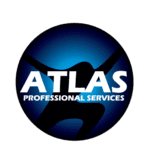Technology Redundancy and Backup Planning for Your Business
When you’re running a business that relies on technology, it’s not a matter of if your IT will go down, but when. Things happen that are out of your control. Hardware fails, the internet goes out, and disasters strike. Unfortunately, you can’t prevent these things from happening. You can, however, prepare for them with a technology redundancy and backup plan for your Tampa Bay business.
In the IT world, redundancies and backups serve as a safety net. Having these systems in place reduces the amount of IT downtime you’ll experience should your system go down.
Your technology redundancy and backup plan should cover the following:
1. Power
You can’t predict when your power will go out, but you can be prepared. Just like you prepare for a power outage at home with a generator, batteries and other necessary supplies, you should take the same precautions for your business as part of your technology redundancy and backup plan.
For large companies, a backup generator may be a good solution. This can keep the company up and running during a power outage and ensure that on-site servers, workstations and other necessary IT components are accessible either onsite or remotely. High runtime uninterruptible power supply (UPS) batteries can also be connected to servers and important network equipment. While smaller UPS’s should be connected to each workstation to ensure users can save their work and safely shut down their computer.
2. Internet
Internet is also a very common outage issue because there are so many factors that can affect your internet connection. Construction workers could accidentally cut your cable, or bad weather could affect your connection. Adding to this, providers may be unreliable and can take hours to get you back up and running.
When establishing your technology redundancy and backup plan, consider utilizing two separate Internet providers such as a fiber-optic internet service (FiOS) provider and cable internet provider. Having two lines will mitigate the risk of IT downtime should service from one provider go down.
We also recommend purchasing a business or enterprise plan for at least one of these contracts. Enterprise-grade internet packages offer higher speeds and faster service. This is helpful if your service is interrupted.
3. Networking and Server Hardware
The servers that store your data, applications and resources are incredibly important to keeping your business running. As are your firewalls, routers and switches. As this hardware ages, the chances of a failure increase. Putting together a technology redundancy and backup plan for these systems is two-fold.
First, you should regularly assess hardware to determine if it needs to be repaired or replaced and if it is still under warranty. Hardware under warranty is much easier and faster to fix than hardware that is not. If hardware is covered under manufacturers’ warranty, it can also be replaced in the event it fails and can no longer function.
Second, technology backups should be in place for all of these devices. If something goes wrong and it cannot be powered back on, you will have a fail-over device to rely on while your primary hardware is repaired or replaced.
4. Data Storage
The servers that house your data can go down for a number of reasons – power and hardware failure included. When they do, your business will come to a halt. In addition to the above IT backups and redundancies, housing data offsite at a regional data center or in the cloud can add an extra layer of protection.
By doing so, you’re essentially removing the risk of power failure or hardware failure. The onus of responsibility is now on a trusted third party that will go above and beyond to ensure your data is safe.





